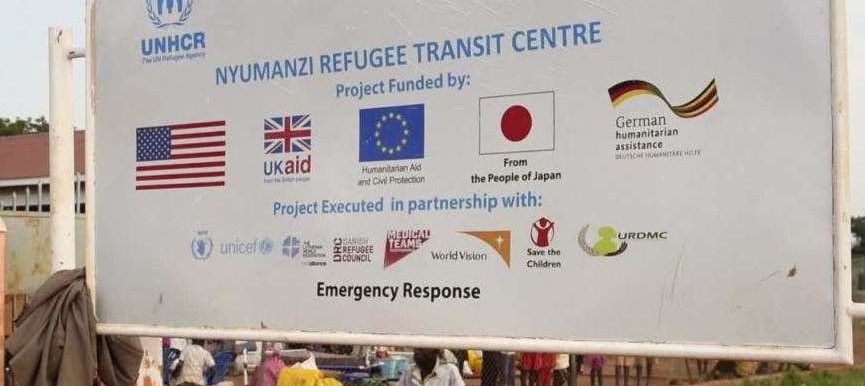A somber mood and stares of desperation, is all one could see in Peter Kuol Riak’s eyes as he sat among dozens of South Sudanese refugees attending a peace prayer at Nyumanzi, a refugee camp in the Ugandan north-western district of Adjumani.
“We are tired of war. Peace is what we are praying for,” the18-year old, who hails from South Sudan’s Jonglei State, said on Tuesday.
About 200 refugees on Tuesday gathered for a peace prayer organised by various churches in collaboration with “Remembering the Ones We Lost”, an entity with a mission to identify and name all victims of the civil wars that hit South Sudan since 1955.
“Let us shun the use of violence to settle our differences. We have to live in peace and the peace must start from our homes,” Daud Gideon, the executive director of Remembering the Ones We Lost, said as he read 21 of more than 6,700 names on the organization’s website.
About one-third of the South Sudanese population of 12 million people has now been displaced due to the conflict.
However, although various international organizations have documented numerous examples of mass killings, there is no official death toll estimates.
But a recent report published by the London School of Hygiene and Tropical Medicine estimates that at least 382,900 people have died as a result of the country's five-year civil war.
“Absence of peace in homes and within our various communities is what will lead to violence in the entire country,” further stressed Daud.
As the sermon progressed, the various pastors who spoke emphasized the need for unity, reconciliation and forgiveness.
John Achiek from the Pentecostal Church, said he was concerned about rivalry among communities. “Unless we end this bitter rivalry, peace will always elude us,” he said.
Michael Duot Garang, a pastor from the Anglican Church of South Sudan, urged the congregation to pray for the country’s leaders. “We need to pray for our leaders to ensure what happened in South Sudan does not happen again,” Garang said, through a translator.
Meanwhile, the acting chairperson for Nyumanzi resettlement camp urged the people to pray so that their living conditions are improved.
After opening in January 2014, Nyumanzi has become the largest refugee settlement in Adjumani district in terms of population size.
But despite their relatively recent arrival, residents are already well-established and a strong community has emerged in which refugee households actively collaborate with each other to share resources.
However, although many of the refugees are resilient, gaps in critical sectors, such as education and water, health and sanitation, persist and undermine refugees’ ability to cope with their displacement.




